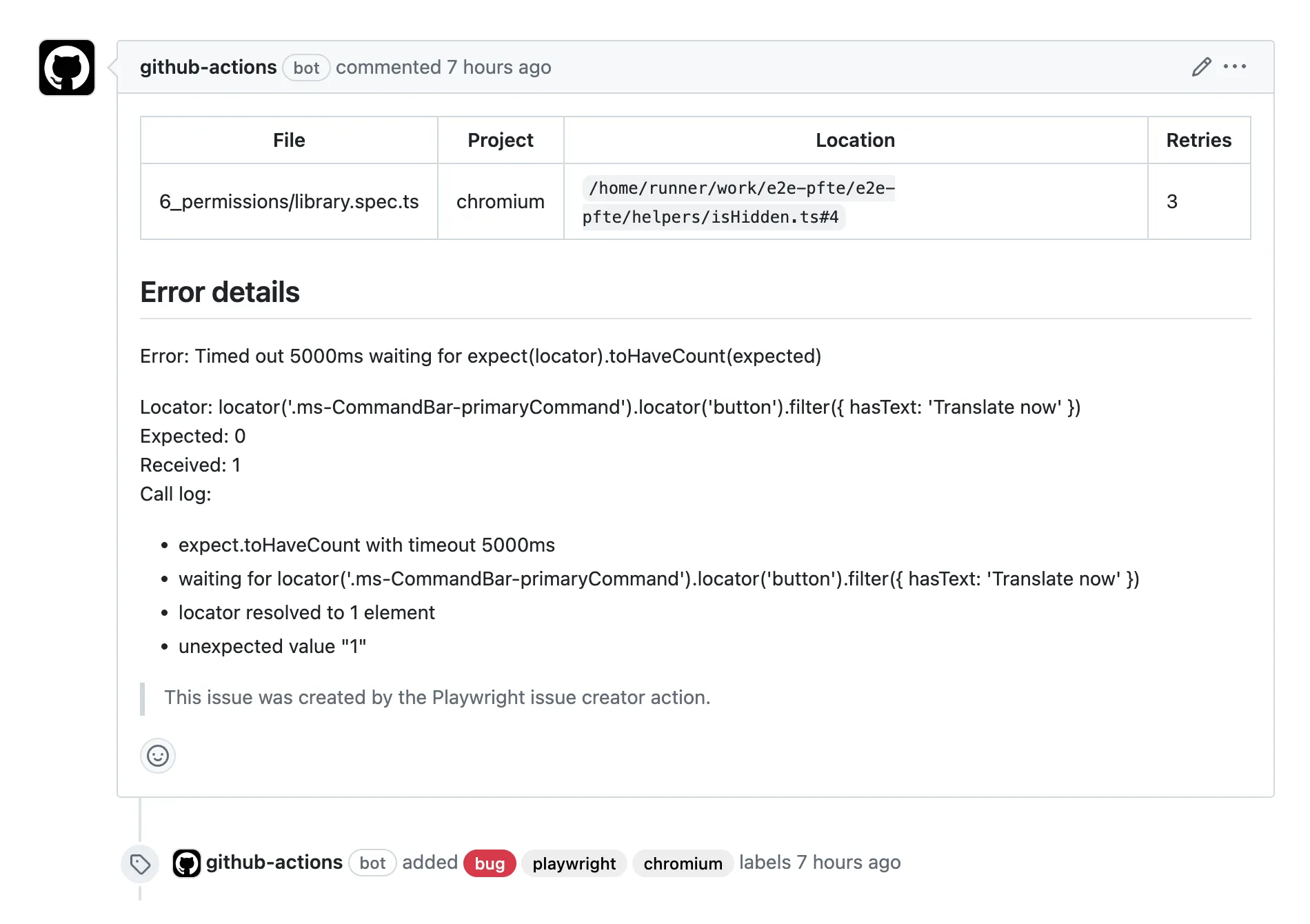Create GitHub issues on failed Playwright tests
This post is over a year old, some of this information may be out of date.
As various projects I maintain for customers include end-to-end (E2E) tests using Playwright, which run on a daily schedule and on every new release, I wanted to automate following up on failed tests. Instead of manually creating issues, I automated the process using GitHub Actions and the GitHub API. This worked great, but I thought to myself, why not share this with the world? So, I created a GitHub Action that does exactly that.

In this blog post, I will explain how you can use GitHub Action to create issues on failed Playwright tests automatically.
The GitHub Action
The GitHub Action is called Playwright Issue Creator and is available on the GitHub Marketplace.
The Playwright Issue Creator action relies on the JSON report created by the JSON reporter to verify the test results.
Usage
Include the JSON reporter to your Playwright config
As mentioned, the GitHub Action relies on the JSON report created by the JSON reporter.
You can include the JSON reporter in your Playwright config or use the --reporter json flag when running your tests.
Using the JSON reporter in your Playwright config
import { defineConfig } from "@playwright/test";
export default defineConfig({ reporter: [ ["json", { outputFile: "results.json" }] ]});Using the --reporter json flag
PLAYWRIGHT_JSON_OUTPUT_NAME=results.json npx playwright test --reporter=jsonCreate a GitHub Action workflow
Create a new GitHub Action workflow in your repository and add the following content:
name: Playwright Tests
on: schedule: - cron: "0 6 * * *"
jobs: test: timeout-minutes: 30 runs-on: ubuntu-latest
# Assign write permissions for issues to the GITHUB_TOKEN permissions: contents: read issues: write
steps: - uses: actions/checkout@v4
- uses: actions/setup-node@v4 with: node-version: lts/* cache: npm
- name: Install dependencies run: npm ci
- name: Run Playwright tests run: npx playwright test
- name: Playwright issue creator if: always() with: report-path: results.json issue-prefix: "E2E: " issue-labels: "playwright, bug" add-project-label: true add-comment: true job-summary: trueRun your tests
After you set up the above GitHub Action workflow, the test will run daily at 6 o’clock. You can, of course, add more triggers or run the tests on every push.
Happy testing!
Related articles
Report issues or make changes on GitHub
Found a typo or issue in this article? Visit the GitHub repository to make changes or submit a bug report.
Comments
Let's build together
Manage content in VS Code
Present from VS Code
Engage with your audience throughout the event lifecycle
